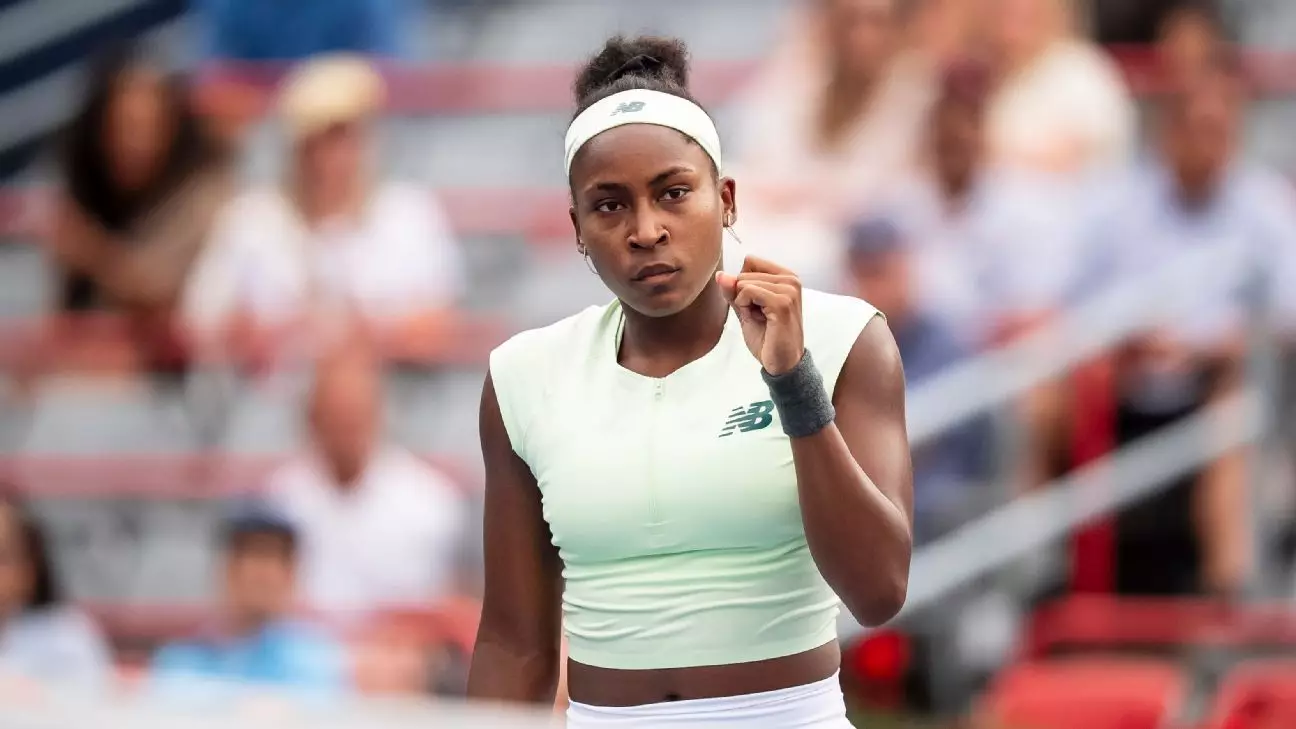Women’s tennis today showcases not just physical prowess but remarkable mental resilience. Coco Gauff’s recent victory at the National Bank Open exemplifies this perfectly. Despite serving 14 double-faults—a statistic that could easily shake the confidence of any athlete—Gauff refused to succumb. Her ability to recover from setbacks and adapt under pressure reveals that mental toughness often triumphs over raw talent alone. This match underscores an essential truth: in tennis, resilience and strategic mental engagement matter just as much as technical skill.
Gauff’s mental fortitude was particularly evident during her comeback against Veronika Kudermetova. Falling behind after losing the first set and facing her own serving struggles, Gauff refused to quit. Her focus on the return game and her calm mental state in the face of adversity demonstrated a level of maturity beyond her years. The match was a testament to her growth, signaling that emotional stability is a strength that can carry players through periods of difficulty.
Adapting to Challenges: The Significance of Self-Refinement
Despite her impressive accomplishments, Gauff recognizes her vulnerabilities. Her acknowledgment of the need to improve her serve reflects a strategic mindset dedicated to continual self-improvement. Winning matches while “literally on a crutch”—only one of her game’s aspects functioning at full capacity—reveals an athlete capable of performing under less-than-ideal circumstances. This adaptability is crucial in an unforgiving sport where peak performance can swing on minor technical imperfections.
Her reflection on her recent losses—post-French Open and during the European swing—indicates an awareness that growth often stems from adversity. Gauff’s optimism about her prospects once her full skill set is fully operational is realistic; it is a belief rooted in her determination to evolve. As she prepares for her next match against Victoria Mboko, her resilience, coupled with her strategic awareness, positions her as a player who refuses to let moments of weakness define her career.
The New Generation: Upstarts and the Future of Women’s Tennis
The narrative of women’s tennis is now increasingly shaped by youthful energy and fearless competition. Victoria Mboko’s victory over Marie Bouzkova exemplifies this burgeoning talent. The 18-year-old Canadian’s mental and physical toughness during her match signals a shift—players are increasingly confident, daring to challenge established stars with agility and resolve.
Similarly, the emergence of other young players like Marta Kostyuk and Dayana Yastremska exemplifies a new wave of resilient contenders. Their victories over seeded opponents reflect a broader transformation within the sport: a shift towards more unpredictable and dynamic tournaments. These players are not just fighting for ranking points—they are challenging the status quo, bringing fresh energy and tenacity that push the boundaries of what is considered possible.
The ongoing narratives in women’s tennis serve as powerful reminders that resilience, mental strength, and constant self-improvement are the true hallmarks of greatness. The sport has become a battleground where youthful boldness meets seasoned grit, inspiring fans and future players alike to pursue excellence regardless of obstacles. These stories forge a new era—one where determination, adaptability, and unshakable confidence are celebrated as keys to unlocking potential.


Leave a Reply